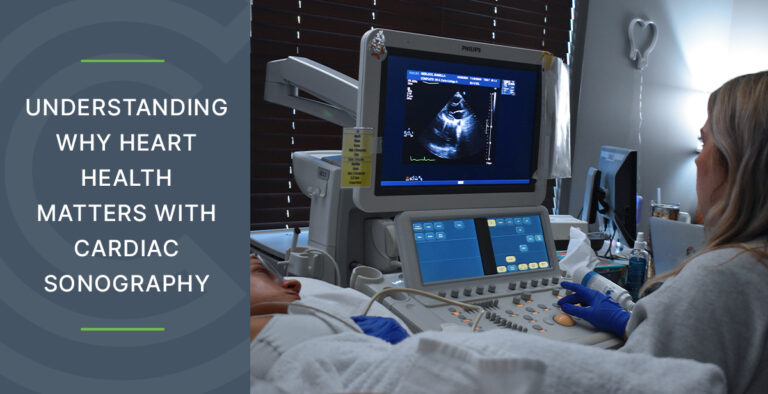Heart health is a critical component of overall well-being, and cardiac sonography is vital in maintaining and monitoring heart health. This non-invasive imaging technique helps diagnose and manage various cardiovascular conditions, ensuring timely and effective treatment. In this blog, we’ll delve into why heart health matters and how cardiac sonography contributes to maintaining it.
The Importance of Heart Health
Heart Disease: A Leading Cause of Death
Heart disease remains one of the leading causes of death worldwide. Understanding and maintaining heart health is crucial for preventing heat-related illnesses and enhancing the quality of life. The Key factors contributing to overall heart health include diet, exercise, genetics, and lifestyle choices. Regular monitoring and early detection of heart conditions can significantly reduce the risk of severe complications.
Preventive Measures and Lifestyle Changes
Promoting heart health involves adopting a heart-friendly lifestyle. This includes:
– Balanced Diet: Consuming a diet rich in fruits, vegetables, whole grains, and lean proteins while minimizing saturated fats, trans fats, and cholesterol.
– Regular Exercise: Regular physical activity strengthens the heart and improves circulation.
– Avoiding Smoking: Quitting smoking and avoiding secondhand smoke to reduce the risk of cardiovascular diseases.
– Stress Management: Implementing stress-reducing techniques such as meditation, yoga, or deep breathing exercises.
The Role of Cardiac Sonography in Heart Health
Non-Invasive Diagnostic Tool
Cardiac sonography (echocardiography), is a non-invasive imaging technique that uses sound waves to create detailed images of the heart. These images help cardiologists assess the heart’s structure and function, enabling them to diagnose and monitor various heart conditions.
Key benefits of cardiac sonography include:
– Real-Time Imaging: Providing live images of the heart in motion, allowing for immediate assessment and diagnosis.
– No Radiation Exposure: Using sound waves instead of radiation, making it a safer option for patients.
– Comprehensive Heart Evaluation: Offering detailed views of the heart’s chambers, valves, and blood flow.
Diagnosing Heart Conditions
Cardiac sonography is essential for diagnosing a wide range of heart conditions, including:
– Coronary Artery Disease: Detecting blockages or narrowing of the coronary arteries that can lead to heart attacks.
– Heart Valve Disorders: Assessing the function and structure of heart valves to identify issues such as stenosis or regurgitation.
– Cardiomyopathy: Evaluating the heart muscle to diagnose conditions that affect its size, shape, and function.
– Congenital Heart Defects: Identifying structural abnormalities in the heart present from birth.
Pursuing a Career in Cardiac Sonography
Educational Requirements and Training
To become a cardiac sonographer, complete a specialized educational program that includes both classroom instruction and hands-on training. The curriculum includes:
– Anatomy and Physiology: Understanding the structure and function of the heart and cardiovascular system.
– Ultrasound Physics: Learning the principles of sound wave technology and how it applies to cardiac imaging.
– Clinical Practicum: Gaining hands-on experience in real-world healthcare settings under the supervision of experienced professionals.
Certification and Career Opportunities
After completing an accredited program, aspiring cardiac sonographers must pass a certification exam, such as the one offered by the American Registry for Diagnostic Medical Sonography (ARDMS). Certified cardiac sonographers have a range of career opportunities in hospitals, clinics, and diagnostic imaging centers. The demand for skilled cardiac sonographers continues to grow, driven by the increasing prevalence of heart disease and the need for advanced diagnostic tools.
Why heart health matters and the role of cardiac sonography is crucial for promoting cardiovascular well-being. Cardiac sonographers play a vital role in diagnosing and managing heart conditions, ensuring patients receive timely and effective care. If you’re passionate about heart health and want to pursue a career in this essential field, Caris College offers comprehensive programs to help you achieve your goals. Start your journey in cardiac sonography (Diagnostic Medical Sonography Echocardiography) and make a difference in patients’ lives by exploring the programs at Caris College.
More on cardiac sonography vs general sonography
